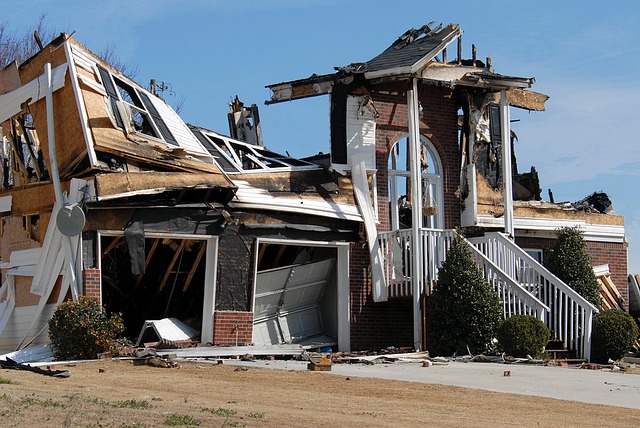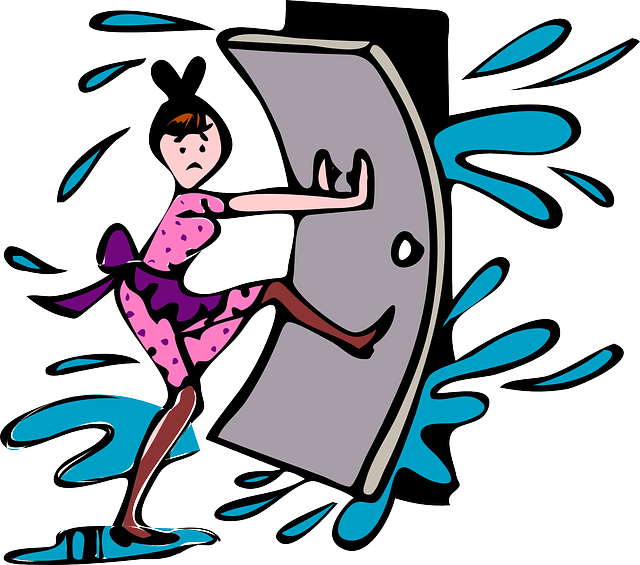In a competitive business landscape, Comprehensive Liability Insurance acts as a crucial shield against diverse risks, offering protection from property damage, personal injuries, advertising mishaps, and legal expenses. This insurance allows owners to focus on growth by safeguarding against high medical bills, legal fees, and court-ordered damages stemming from unforeseen incidents. By understanding their unique risks, business owners can tailor their coverage, considering policy exclusions and adding specialized protections like professional liability and business interruption coverages. Effective navigation of claims processes ensures businesses are adequately insured and prepared for potential liabilities.
“In today’s business landscape, protecting your company from financial risks is paramount. This is where Comprehensive Liability Insurance steps in as a robust shield. This article guides you through the intricacies of commercial liability coverage, offering insights on key components, policy limits, common exclusions, and add-ons.
From understanding the basics to real-world case studies, you’ll discover how comprehensive liability insurance navigates claims processes and provides practical tips for shopping around. Empower yourself with knowledge to safeguard your business against unforeseen events.”
Understanding Commercial Liability: Protecting Your Business from Financial Risks

In today’s dynamic business landscape, understanding Commercial Liability is paramount for any enterprise aiming to safeguard its financial health. Comprehensive Liability Insurance acts as a robust shield, protecting businesses from potential losses and legal liabilities that may arise from their operations. This insurance coverage is designed to mitigate risks associated with various scenarios, including property damage, personal injury, or even advertising errors. By purchasing comprehensive liability insurance, business owners can ensure they are prepared for unforeseen circumstances that could significantly impact their bottom line.
The significance of this protection lies in its ability to cover medical expenses, legal fees, and damages awarded in lawsuits. It offers peace of mind by providing a financial safety net during challenging times. Whether it’s a slip-and-fall incident on your premises or a product liability claim, having comprehensive liability insurance ensures that these incidents don’t turn into financial crises. It allows businesses to focus on growth and success rather than facing insurmountable legal bills and settlements.
What is Comprehensive Liability Insurance? A Detailed Overview

Comprehensive Liability Insurance is a type of commercial insurance designed to protect businesses from a wide range of potential liabilities and risks. It goes beyond basic liability coverage by offering expanded protection for various claims and incidents that may arise in the course of business operations. This includes not just accidents and injuries to third parties but also damage to property, personal and advertising injury, and more.
In detail, Comprehensive Liability Insurance covers a variety of scenarios such as slip-and-fall accidents on your premises, product liability claims for defects or damages caused by sold products, and even libel or slander cases arising from false or harmful statements made in marketing materials. The policy aims to safeguard businesses against financial loss due to legal expenses, settlement costs, and damage repairs or replacements stemming from these incidents. It provides a comprehensive safety net, ensuring business owners can focus on growth and success without the constant worry of unexpected liabilities.
Key Components of a Comprehensive Commercial Liability Policy

When it comes to protecting your business from financial loss and legal liabilities, a Comprehensive Commercial Liability Policy is an indispensable tool. This type of insurance coverage offers a suite of protections designed to safeguard against various risks that can arise in the course of business operations. Key components include general liability coverage, which protects against claims of bodily injury or property damage to third parties; professional liability insurance, covering damages from negligence or errors and omissions related to your services; and products liability coverage, which shields against claims stemming from defective products you manufacture, sell, or distribute.
Additionally, comprehensive policies often incorporate business interruption coverage, providing financial support during unforeseen events that halt operations, such as natural disasters or civil unrest. Also, they may include coverage for extra expenses incurred due to the need to temporarily relocate or suspend operations. These multifaceted protections are tailored to address a wide range of potential risks, ensuring businesses have robust financial safeguards in place against unforeseen events and legal liabilities.
Determining the Right Coverage Limits for Your Business

When crafting a comprehensive liability coverage strategy, understanding your business’s unique risks is paramount. Every company operates within a distinct environment, facing its own set of potential liabilities. Therefore, determining the right coverage limits involves a careful analysis of these risks. It’s essential to consider factors like the nature of your operations, industry regulations, and historical claims data specific to your sector.
For instance, businesses in high-risk industries like construction or healthcare may require higher liability limits due to the potential for significant damages in the event of an incident. Conversely, a small retail store might opt for more modest coverage. Insurance professionals can guide business owners through this process, helping them make informed decisions tailored to their specific needs. The goal is to ensure adequate protection while avoiding over-insuring, which could lead to unnecessary cost burdens.
Common Exclusions to Look Out For in Commercial Liability Insurance

When considering comprehensive commercial liability coverage, it’s crucial to understand the potential exclusions within your policy. These are circumstances or events that are explicitly not covered by your insurance. Common exclusions include activities involving dangerous goods, war or civil unrest, and environmental damage. Even seemingly minor operations can have significant risks, so ensure your policy doesn’t exclude essential business functions.
Additionally, look out for exclusions related to intentional acts, where coverage is denied if the insured person intentionally causes harm or injury. Professional services often have unique risks, and certain policies might not cover claims arising from faulty advice or negligence in rendering professional services. Reviewing these exclusions with your insurance provider can help ensure you’re protected against the most relevant risks for your business.
Enhancing Your Protection: Add-on Coverages and Extensions

When it comes to safeguarding your business, comprehensive commercial liability coverage is a strong foundation. However, enhancing this protection can offer added peace of mind. Consider add-on coverages and extensions tailored to your specific needs. These options broaden the scope of your liability insurance, addressing potential risks that might not be included in standard policies.
For instance, adding an extension for professional liability can protect against claims related to negligence or errors in your business operations. Similarly, coverage for business interruption ensures continuity during unforeseen events, mitigating financial losses. By incorporating these add-ons, you create a robust safety net, ensuring that various aspects of your commercial venture are safeguarded and giving you the freedom to focus on growth and success.
Navigating Claims and Settlement Processes: What to Expect

Navigating claims and settlement processes can be complex, especially when dealing with comprehensive liability insurance. As a business owner, understanding the steps involved is crucial to managing potential risks effectively. When a claim occurs, the first step is to assess and document all relevant details, including the incident, its impact on your operations, and any associated losses or damages. Comprehensive liability insurance policies typically require prompt notification of claims, often within specific time frames.
The next phase involves notifying your insurance provider about the claim. They will guide you through their process, which may include providing a claim form, gathering additional information, and assigning an adjuster to handle the case. During this period, it’s essential to cooperate fully with your insurer, as they will work to verify details and assess the validity of the claim. Settlement negotiations may follow, where both parties discuss terms for resolving the claim, leading to either a monetary settlement or alternative dispute resolution methods.
Shopping for Commercial Liability Insurance: Tips for Business Owners

When shopping for comprehensive liability insurance, business owners should take a strategic approach to ensure adequate protection. The first step is to assess your specific business needs and risks. This involves understanding the nature of your operations, potential hazards, and existing safety measures in place. Commercial liability coverage can protect against various claims, including personal injury, property damage, or even advertising injuries. By identifying these risks, you can tailor your insurance policy to cover them effectively.
Additionally, comparing quotes from multiple insurers is essential. Different providers offer varying levels of coverage and exclusions, so it’s crucial to read the fine print. Consider the financial limits, deductibles, and specific liability clauses. A comprehensive policy should provide sufficient coverage for your business’s unique needs while offering peace of mind against unexpected lawsuits or claims.
Case Studies: Real-world Examples of Comprehensive Liability Coverage in Action

Comprehensive Liability Insurance has proven its value through numerous real-world examples, offering businesses protection against a wide range of risks and potential liabilities. Case studies show that companies with robust Comprehensive Liability Coverage can navigate legal storms more effectively, minimizing financial losses and reputational damage. For instance, a retail business facing a product liability lawsuit due to a defective item would find solace in this coverage, as it can help cover legal fees, settlement costs, and any associated damages.
Another scenario involves a service provider who accidentally causes property damage during their work; Comprehensive Liability Insurance steps in to cover the repair or replacement expenses. These examples illustrate how such insurance adapts to diverse business scenarios, providing a safety net for unexpected events. By learning from these cases, businesses can better appreciate the significance of having comprehensive liability protection tailored to their unique operations and risks.
